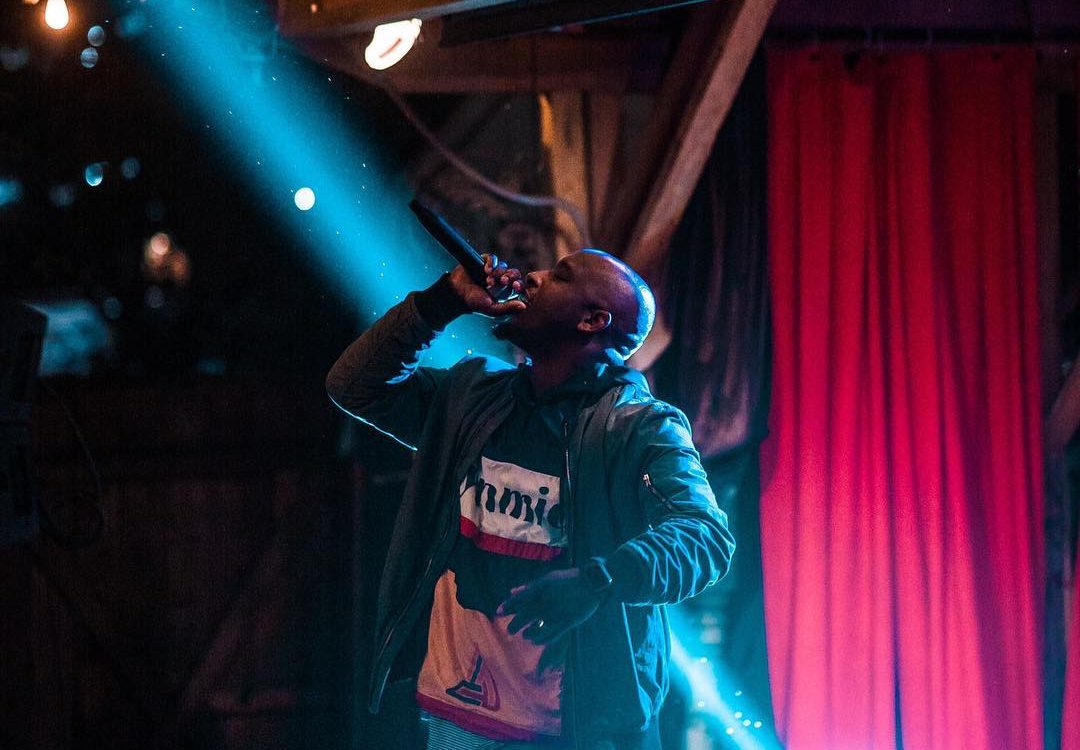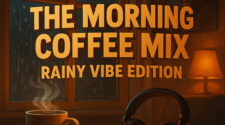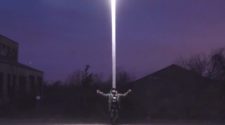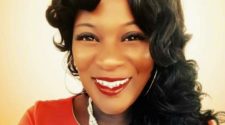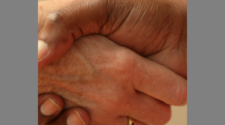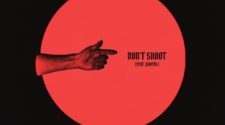Last week Rapzilla introduced you to a concept where you can both read the article and listen to the interview in podcast form. The story was an introduction to Derek Minor and his album The Trap. Today’s story dives into the actual album song by song as we cover the first seven tracks.
Minor lets us all into his meticulous thought process and vision behind each of these tracks. Topics range from what the trap actually is, what kind of desperation makes someone commit crimes, and how segregation ruined millions of lives.
Please, feel free listen, read, or follow along. Also, note that in a few instances words were omitted for reading clarity purposes.
Enjoy.
Derek Minor

The Trap
I intentionally made it beautiful at the beginning. It’s live strings, pianos, etc. I intentionally made that because everyone’s life is a beautiful thing. God gives it to us and God brings us into this world. For most of us, we have this innocence in how we see the world. That’s everyone. When the drum drops, that’s the loss of innocence, we’re talking musically.
It this dark ballad that is beautiful musically, but when you listen to the words they are horrifying, like blow your brains out on Facebook live. I was actually inspired by that line. I remember seeing, there was this older man on Easter who was walking home, and a guy walks up to him and boom, blows his brains out. That’s what inspired that line. So there’s ‘Mama told us that we need God but the rent due. It’s the most high, the trap’. The ‘rent due’ is like ‘Hey, yes, the rent is due and it’s really high’, but it’s also the rent is due, it feels like it is God. Mama told us that we need God, but right now my god is getting this rent paid. It’s a double entendre in that sense. It’s beautiful, and then boom – the drums hit.
You hear ‘Yeah, I know a couple dope dealers and a couple gang bangers’. That’s the realization of what reality is for some people. It’s the loss of that innocence. Then you get into the end and I say, ‘By the way, they say when you get paid and you get a little fame/ that everything change but I can’t tell, I still feel the same because whenever I’m in a store the police watchin’ me’. This is actually when I get personal, not just overall, but I actually talk about myself. The level I’m at as an artist. I’m successful in the sense I have my own business. I work for myself for a living. I live in a very nice neighborhood. No one in my neighborhood has ever necessarily bothered me but you could just tell they all have been trying to figure out what I do.
What I’m talking about as far as in the music portion is, I still have people lock their doors when I’m walking past them at night or something. I can still have the cashiers and people from the stores follow me around the store being overly helpful. I was at a store not too long ago, and I’m just watching the lady at the front cashier. Everywhere I go, she does not let me out of her sight. It’s that idea.
I remember a couple years ago, when I was working on Minorville, and Joseph Prielozny went into the studio, in a studio that I’m paying to rent (it was a heated air storage unit), and there was a lady (the manager) that was living on the premises. She said the music was too loud. We cut it down, and I guess it wasn’t to her liking. So she comes down, and she starts cussing and saying ‘Get the F out of here’ and like ‘I told you it was too loud, you’re done, now get the F out of here’.
Now take into consideration I’m paying for space. When I rented it, they knew it was for a studio and there were hours I could operate in and I was operating within those hours. So this wasn’t two in the morning, this was ten in the evening. So, she doesn’t know Joseph’s in the unit with me. I come out, I close the door and the lady is cussing me out. It’s a white lady, probably in her late 30’s, maybe early 40’s. She’s like ‘Listen, I have a gun’ and I’m talking to her like ‘Mame, listen, it’s fine’. I guess she assumed, because I’m a rapper, she has to flex, so she’s like ‘I have a gun. If you have a problem we can handle it right now’. Like she’s going off. Joseph is audio recording the whole thing, and he just couldn’t believe that this lady was so aggressive with me. That kind of sums it up. If y’all knew I was a Christian rapper like I’m the least threat to you could ever have. I love God, I love Jesus, your kids might even listen to my music. So that’s the idea I was capturing at the end of the song.

God Bless the Trap
Often times we look at people who are poor or look at these drug dealers and say, ‘Man, they should just get their life together’. Especially Christians, which is weird. But we forget that God had to insert Himself into our own lives for us to get ours together, not the opposite. We didn’t get our lives together and then God started working. I’ve seen this crazy thing with the church where it feels as though rather than us saying, ‘God, bless people that are broken, bless people that are hurting, bless them to be able to see who you are’, we curse them. I want to be like, instead of saying, ‘Let’s curse the trap, these people have no value’ let’s say, ‘God bless the trap’. Let’s change their lives.
[Why Minor picked Thi’sl and Tillman to feature] I specifically picked those people to feature on the song because when I think of selfless individuals of people who have come from an environment like that THAT have turned their whole life around and God has really blessed them to be a pillar of good for the community, those are the two people I think of. If they would tell you their story, where they came from and where they’re at now… If you would have met them at the time when they were n that world, you would have thought they could never be where they are today.
You look at a person like Thi’sl who’s a huge humanitarian. You look at Tony Tillman who is one of the best rappers I know and an amazing husband, amazing father, and a huge asset to the world at large, but a huge asset to even his local community [by] mentoring people, all those different things. I specifically chose them, not because they are amazing, but because they are a picture of what I see in every person.
Robin
There’s multiple layers to that. What I wanted to show in this song was: 1. People don’t often choose the situations they’re in, they’re given to them. So ‘Open up the fridge, nothing but old milk and rice in here’. A person wakes up in the morning.. The most bare necessity is nutritious food. In most poor environments, the worst food is the cheapest food. I want to capture that whole idea that the bare necessities for most people are things we take for granted. Some people don’t have them when they open the fridge. And after a while, that begins to weigh on you.
And the question in ‘Robin’ is: what makes someone so desperate that they would do something like rob a store? What inspired that was, my wife is a pharmacist, and someone robbed a store in her area. I told her, ‘Look, if someone robs your pharmacy, give them whatever they want’. But the pharmacy she works for is a 99.9% out of 100 percent fail rate because as soon as you rob the store, they hit the button, and the cops are there in 30 seconds because it’s a pharmacy. The question is, most people know that, so what’s the desperation that would make someone go in and rob a pharmacy. That’s what got my mind thinking about that.
The first verse is a man that’s THAT desperate. He goes on a mission, and he gets arrested. So now we have this man who says, ‘I look at my kids and I got to feed my kids, so I got to do something that is illegal and almost irrational’. If you listen to the second verse, it is his son. He starts off by saying, ‘Open up the fridge, ain’t nothing but old milk and rice again/ My mama on dope and she ain’t here/ What we finna do my daddy in the pen’? His dad went to jail in the first verse. This kid picks the same thing his dad picked. Not because he looked up to him, but he thinks ‘Well my mom’s on drugs, my dad’s in jail, I got to take care of my siblings’. Out of desperation, he goes and picks the same thing.
Now, the average person would say, ‘Hey, why don’t he go to college, go to school, and try to get a regular job’? Well, college is cool. Usually, in these environments, there’s not a lot of jobs that pay anything that’s significant. But when you’re hungry now, going to school or college, that doesn’t matter to someone that’s 13. When you talk to a lot of these people that are drug dealers, they didn’t start selling drugs when they were 18. They didn’t say ‘Well, I’m 18 years old I could either go to college or I could sell drugs’. Sorry, that’s not usually how it happens. How it normally happens when someone is 12 or 13, and someone they know might say ‘Hey run this pack across the street for $50’. You do that a couple times, and then you kind of fall into that lifestyle. Oftentimes, that is kind of their scenarios. So I wanted to show the challenges here, but the whole song is a double entendre.
Another aspect is, who is the actual hero? Because to the regular society, they would look and say, ‘Both of these two are a family full of burglars or thieves that do not care about themselves, they’re poor, and just want to wreak havoc’. To the family they are going to support with this lifestyle – they are heroes. In the last verse I say, ‘Imma save us all, Imma save us all, I got this mask on my face’. That’s the idea of who’s the real hero. To the sibling, the older brother is going out and robbing a store or whatever, he’s a hero in the eyes of that child. But to the judge, that guy is a villain. Then there’s the double entendre of ‘Robbin, ain’t no Batman, oh I guess I’m Robin’. So, there’s no one here to save us, so I guess I will be the hero and do it, or there’s no one here to save us, so guess I will pick my gun up and go rob somebody.
Derek Minor
It is What It Is

That transpired from a conversation I had with somebody who is really close to me that sells drugs. We were just talking about it and he’s like, ‘Man, you know how it is; there’s no jobs, no nothing’ and it was a perspective of ‘It is what it is’. He’s like, ‘This is the game. This is the hand that was dealt. I got to deal with this. This is where I am at’. It kind of broke my heart because 1. I didn’t have an answer as far as options for this person. I didn’t have an answer to be able to say, ‘Naw, you know you don’t have to do that. Here just go to this place, barely graduate high school with no college degree’. There’s not many jobs you can get, especially where he lives at. So just the idea of, ‘This is the life I have’ and accepting it’. I wanted to say; what would that person say if they had an opportunity to speak with the world, what would he or she say? It’s me putting words to those emotions.
Nothing to Something
I’m a huge Monopoly fan. The way we play is, before you buy a property, you have to roll the dice and get around the board once. That could take ten rolls or you could get ‘Advance to GO, collect $200′, and buy a property right after that. In America, because of things like slavery which literally set us back financially.
There’s a video of Martin Luther King Jr. talking about, after the Civil War, how America taught farmers how to farm, also gave them grants to go to college to learn how to farm, gave grants to help them purchase equipment for their land, and things like that. But when you think about the African Americans, after slavery there was Jim Crow, sharecropping, and things like that. Then after that you have the privatized prison system. There’s no ‘Advance to GO, collect $200’ and buy property off the first roll. But for most white people in America, it’s not to say they have a free lottery ticket, it’s just by nature you start ahead of us, our culture, just by the simple fact you don’t have to fight discrimination. It’s the idea of white privilege, but often times when we hear black people talk about white privilege, they talk about it from the perspective of every white person has got some lucky card in their back pocket, and that’s how people take it. They say white privilege is THIS.
What I wanted to do was talk about it from the other aspect of white privilege isn’t something that you’re born and then they give you his white privilege card. It’s not like ‘Alright, here’s your Advance to Go, collect $200 card, your life is perfect now’. No, I don’t see any white person that I have talked to say their story lines up in that way. But when you look at all of America and you look at what is the biggest way to accumulate wealth, it’s homeownership, even having the right to vote, to be able to vote for your agenda in your community. Black people haven’t experienced that flawlessly yet in our country. Even right now they’re talking about voter suppression in Florida and Georgia and multiple other places in our country. We’re still dealing with things like that to this very day. So because of that, it puts us behind culturally oftentimes behind most cultures.
When you look through history, people think African Americans, they think we’ve not been together. We’ve been poor, and we hate our own kind. But that’s not historically accurate. One of the most prominent areas was in Oklahoma. I think in Tulsa, and they called it Black Wall Street. It was an area of affluence and became so affluent as a black community that they had their own banking system and everything. It was burned to the ground. There were police officers there helping it burn to the ground. This is not in the 1800s, this is in the ’40s [further research said 1921]. This is in my grandparents’ generation.
My mother remembers desegregations. The issue is not black people don’t want to get it together, the issue is that our laws have been put in our way for us not to get it together. It’s not by choice, no one says I want to be poor by choice. Even when you look at privatized prisons when you think about [it]. In the New England area, there was a thing called ‘Cash for Kids’ where there was a judge who’s sending these kids to prison because he is getting money because he has stock in a privatized prison or something. He’s actually over sentencing these kids because he’s profiting from them being in prison. That is slavery. That is systematic. The more you do that, that’s more father’s in prison and things of that nature. So ‘Nothing To Something’ is showing the idea that most of us had to go from nothing to something.
My family didn’t have an inheritance. My dad didn’t have any sort of thing to give me, no resources, no connections. That’s most of us. We’re talking culturally, I think they say that a black person with the same education as a white person makes half of what that white person makes or even less. So when you think of it in that picture, that’s what we are talking about when we talk about privilege. It wasn’t from a perspective of ‘Hey, every white person gets this Advance to Go, collect $200 card’, but it’s the idea of, you can’t look at a person’s life without looking a the history of the culture that they have been a part of.

Of Course
‘Of Course’ was this really neat celebrating for myself track. For myself, God’s put me in the position to be able to take care of my family and own my own business. It was really one of those things to be able to celebrate the blessings that God is allowing me. For a lot of black people because of the context we came from, once you leave that context there’s this thing people call ‘survivors remorse’ where you feel guilty for surviving. For myself, I’ll often experience that at times, but I want to thank God from bringing me from the bottom.
Man
This is my machismo record. A lot of times you ask a person what is a man, and they have no clue what one is. This is really me talking about how I am made in God’s image. I am a man, and I deserve a certain level [of value]. So it’s me talking about that value for every man. What inspired it is, when people don’t have Jesus as the portrait of humanity looks like. When I say ‘man’, I mean man and woman. Like the last line is, ‘When I look inside the mirror all I see, revolutionary Jesus or T’Challa’. So it’s like revolutionary. I see the image of God in me. I see T’Challa, see a king. See someone with limitless potential. It’s to encourage people in their identity as being made in the image of God. You have that value. It’s intrinsic, no one can take that away from you. It is your value, you have it. Even if the world would try to devalue you.
Listen to Derek Minor Below:
ABOUT THE AUTHOR
Justin Sarachik
Justin has been a reporter for 8 years. He has written or edited for Relevant, Christian Post, BREATHEcast, CCM, Broken Records Magazine, & more. When not writing he’s on stage rhyming as the frontman of Process of Fusion. He also likes to work with indie artists to develop their brands & marketing strategies. Catch him interviewing artists on Survival of the Artist Podcast.
3,610 total views, 0 views today
